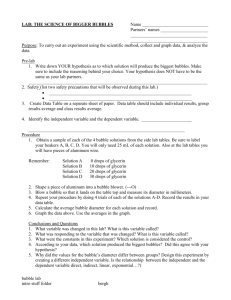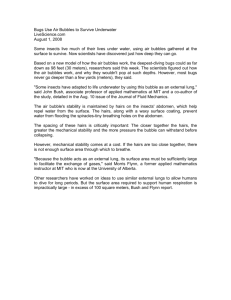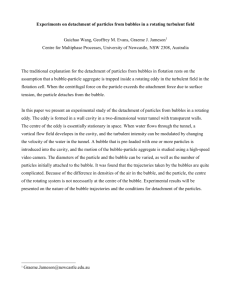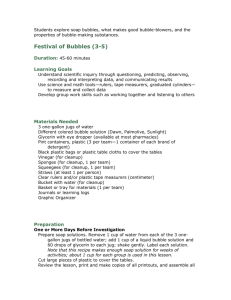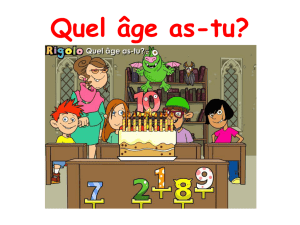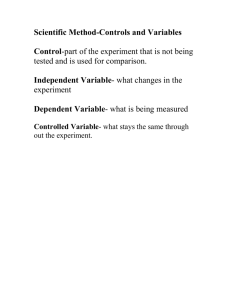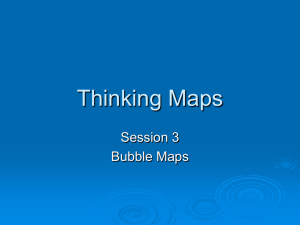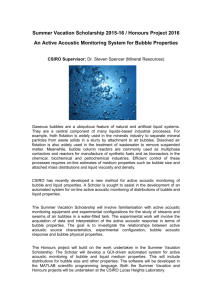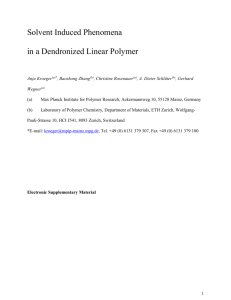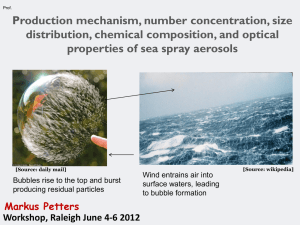北京师范大学复杂性Summer School 北京师范大学系统科学系2010.7
advertisement
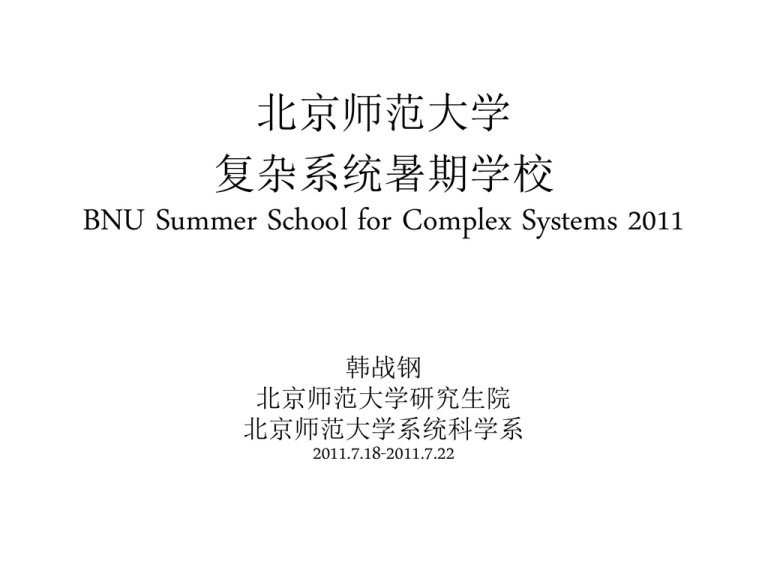
北京师范大学 复杂系统暑期学校 BNU Summer School for Complex Systems 2011 韩战钢 北京师范大学研究生院 北京师范大学系统科学系 2011.7.18-2011.7.22 北京师范大学 复杂系统暑期学校 • 传播系统科学的思想,介绍复杂系统研究 的进展。 • 延揽更多对系统科学研究感兴趣的学生、 学者,进入系统科学研究领域。 北京师范大学系统科学系 • • • • • • • • • 1979年成立了非平衡系统理论研究所, 1985年建立了系统理论本科专业, 1990年成为系统科学首批博士学位授权单位, 1993年筹建系统科学系, 1998年建立全国首个系统科学博士后流动站, 2000年取得系统科学一级学科博士学位授予权, 2000年建立系统分析实验室, 2001年系统理论专业被评为系统科学学科中全国唯一国家重点学科, 2004年在教育部评估中心组织的一级学科评估中,北京师范大学系统 科学学科名列全国第一, • 2004年建立复杂性研究中心, • 具有从本科到博士后流动站的完整人才培养体系,是学校重点支持发 展的学科,基础坚实、特点突出、实力雄厚,具有较强竞争力和发展 潜力的优势学科。 科学的兴趣 对所有事物用科学的眼观看待 科学就在我们身边 (How the bubble bursts) Daughter bubble cascades produced by folding of ruptured thin films Bird, J., de Ruiter, R., Courbin, L. & Stone, H. A. Nature 465, 759-762 (2010). Harvard University, Université Rennes, France Princeton University When a bubble ruptures, the general expectation is that the bubble vanishes. Bubbles can create numerous small bubbles when they rupture, rather than vanishing. Demonstrate, both experimentally and numerically The higher pressure associated with the higher curvature of the smaller bubbles increases the absorption of gas into the liquid, and increases the efficiency of rupture-induced aerosol dispersal. behavioural asymmetry Human behaviour: Adult persistence of head-turning asymmetry Onur Güntürkün (ruhr-unibochum), Nature 421, 711 (13 February 2003) . FIGURE 1. The number of couples who turn their heads to the right rather than to the left when kissing predominates by almost 2:1 (64.5%: 35.5%; n = 124 couples). FIGURE 2. The Kiss: the couple in Auguste Rodin's masterpiece are turning their heads to the right to kiss each other. Why Systems Science? • 描述系统所需维数很大,如社会经济系统,生物系统,导致“还原论” 的方法已经无法看到整个系统的全貌。 • 系统往往具有层次性。 • 系统不同尺度的性质是不同的,但不同尺度间有联系。 • 系统具有不可逆性。 • 系统的相互作用有强烈的非线性性。 • 涌现性。 • Stephen Hawking: I think the next century will be the century of complexity. • Russ Abbott (Dept. of Computer Science,California State University, Los Angeles): Emergence: the holy grail of complex system computing Is complexity far from us? Non-equilibrium Nonlinearity Hysterisis Entropy A Clausius S q T Boltzmann S K B Pi ln Pi i Sigmoidal & Hysterisis Response (PKC) • • • • 3 b 2 a T2 1 -5.0x10 -5 0 0.0 T1 5.0x10 -5 1.0x10 -4 1.5x10 -4 2.0x10 -4 2.5x10 Stimulus (NO donor or Diazoxide) -4 Thank you! Wish you a success in learning and a happy stay in the summer school!
